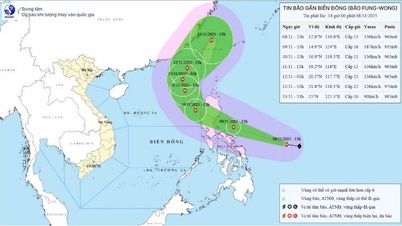GĐXH - In fact, you can completely deal with this stage of your child easily if you know how to change yourself first to suit your child's psychology.
Adolescents (14-15 years old) are in a stage called "rebellion". Sometimes the more parents want to resolve the conflict, the more serious it becomes.
Therefore, parents need to equip themselves with effective ways to teach their teenage children to avoid unwanted problems.
1. Keep a cool head
When children show signs of rebellion, parents often feel extremely dissatisfied and use their power to overwhelm them.
In fact, this action is like "adding fuel to the fire". At this time, what you need to do is keep yourself calm and clear-headed.
When both sides are agitated, it's best to be patient and wait for the child to calm down before starting the process of sharing and "negotiating".
With a volatile mentality and lack of self-control, a child's language and actions when resisting are really intense.
Therefore, at this time, adults need to keep a cool head to avoid the atmosphere becoming heavier and more difficult to reconcile.

When both sides are agitated, it's best to be patient and wait for the child to calm down before starting the process of sharing and "negotiating". Illustration photo
2. Spend more time with your children
The difference in thinking between parents and children is evident in many families today.
This makes it difficult for children to open up and talk to their parents. The distance between family members also separates them.
Once or twice a week, parents should set aside time to talk and play with their children and absolutely not focus on anything else.
In this way, parents can not only strengthen their emotional relationship with their children but also teach them some personal communication skills.
This is very important for the future development of children's personality.
3. Don't be too protective of your children.
Instead of always being afraid that your child will do something wrong, encourage them to be brave enough to try the things they want to do.
By experiencing things for themselves, children will develop the ability to be independent and dare to express their thoughts to others. At this time, you should only play a leading role and support your child when necessary.
Let children know that when considering a problem, they should think from many perspectives and especially be positive. They should not complain or blame when they are not satisfied with something.
You should also give your child more space so that he or she feels respected.
4. Don't judge
At this age, children are very sensitive to everything that happens around them. Even parents often judge and compare their children with other children.
At this time, children only realize that their parents are always harsh and do not care about them.
However, in any case, parents should not be too harsh and favor their neighbor's children over their own.
Understanding the psychological and physiological changes that occur during puberty is essential for many parents. Thanks to that, you will have an effective way to teach your children.
5. Trust me
At this time, children have a very strong sense of independence, so it requires you to have corresponding trust.
During this period, many children think that their parents never trust them or understand them.
In this situation, what you should do is give your child certain rights, at the same time show that you trust him, let him do some things within his ability and be willing to accept if he does not do well.
The rebellious period is when children are half-adult and half-child, so being trusted is a very important need for them.

The rebellious period is when children are half-adult and half-child, so being trusted is a very important need for children. Illustration photo
6. Let your children be independent
It is easy to see that when children enter puberty, they start to want to stop receiving help from their parents and prefer to rely on their friends more.
Therefore, parents need to consider carefully before getting information from one of their children’s peers. Avoid letting children lose trust in their parents when they know this action has occurred.
At this point, the role of parents in their children's world gradually fades away. This is the stage when children really have secrets they want to hide from their parents.
The more parents care and are curious to learn about their children from their friends, the more their children will appear distant and indifferent to their parents.
Therefore, parents should let their children be independent and do what they want.
7. Applying the "implicit education " method
When faced with your child's defiant behavior, you should never directly say "No!"
For example, if a child says he wants to buy a branded shirt, if you say "No", it will only make him want to buy it even more, because at this point he feels he cannot share or communicate with his parents, that if his parents do not understand him, "it is useless to say anything".
Give your child many opportunities to express his or her wishes to you. If the request is unreasonable, you should also patiently explain to your child what is unreasonable in your request.
Also, allow your child to make mistakes and understand that you will sympathize and understand their mistakes.
8. Try an indirect approach
Before your child entered puberty, parents could talk frankly with their child about every issue that happened during the day such as: "How was school today?", "What happened at school?" or "Did you do well on the test?". Now, when your child enters puberty, things are different.
At this age, asking such direct questions will make your child uncomfortable and feel like his or her private world is being invaded.
Parents can use some indirect ways to care for their children, such as sitting down next to them, not asking any questions, just listening.
This action has the potential to reveal more information about the secrets your child is hiding.
Occasionally, you can take the initiative to share or give advice to your child, but don't interfere or try to solve every problem for your child.
Source: https://giadinh.suckhoedoisong.vn/8-chieu-ung-pho-voi-con-bao-day-thi-cua-con-ma-cha-me-nen-biet-172241027095625022.htm






![[Photo] Cutting hills to make way for people to travel on route 14E that suffered landslides](https://vphoto.vietnam.vn/thumb/1200x675/vietnam/resource/IMAGE/2025/11/08/1762599969318_ndo_br_thiet-ke-chua-co-ten-2025-11-08t154639923-png.webp)

































![[Photo] "Ship graveyard" on Xuan Dai Bay](https://vphoto.vietnam.vn/thumb/1200x675/vietnam/resource/IMAGE/2025/11/08/1762577162805_ndo_br_tb5-jpg.webp)





![[Video] Hue Monuments reopen to welcome visitors](https://vphoto.vietnam.vn/thumb/402x226/vietnam/resource/IMAGE/2025/11/05/1762301089171_dung01-05-43-09still013-jpg.webp)




































































Comment (0)